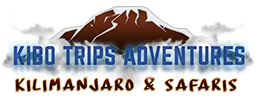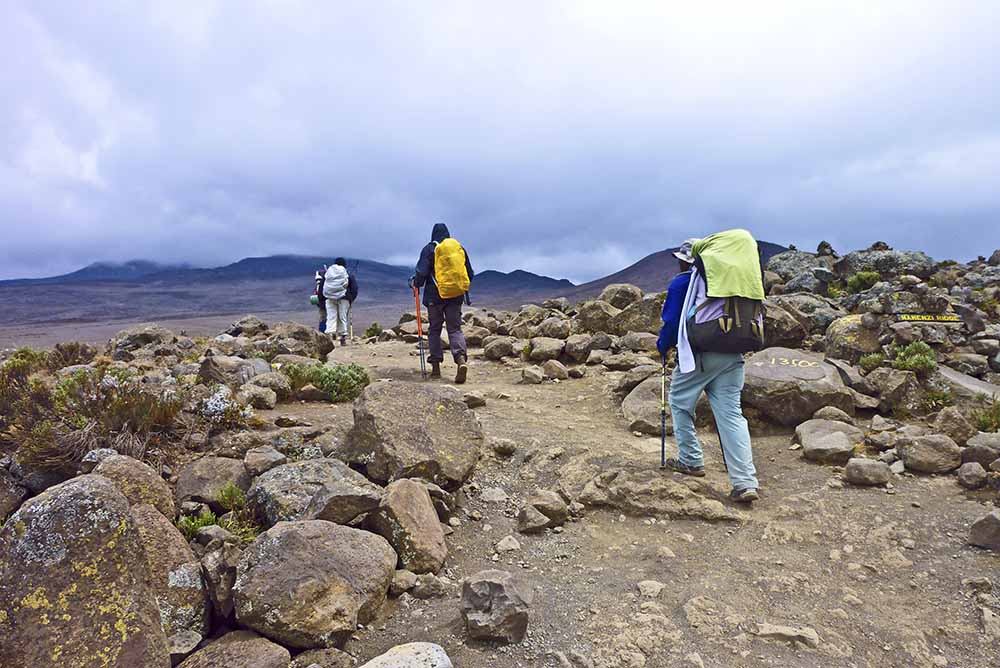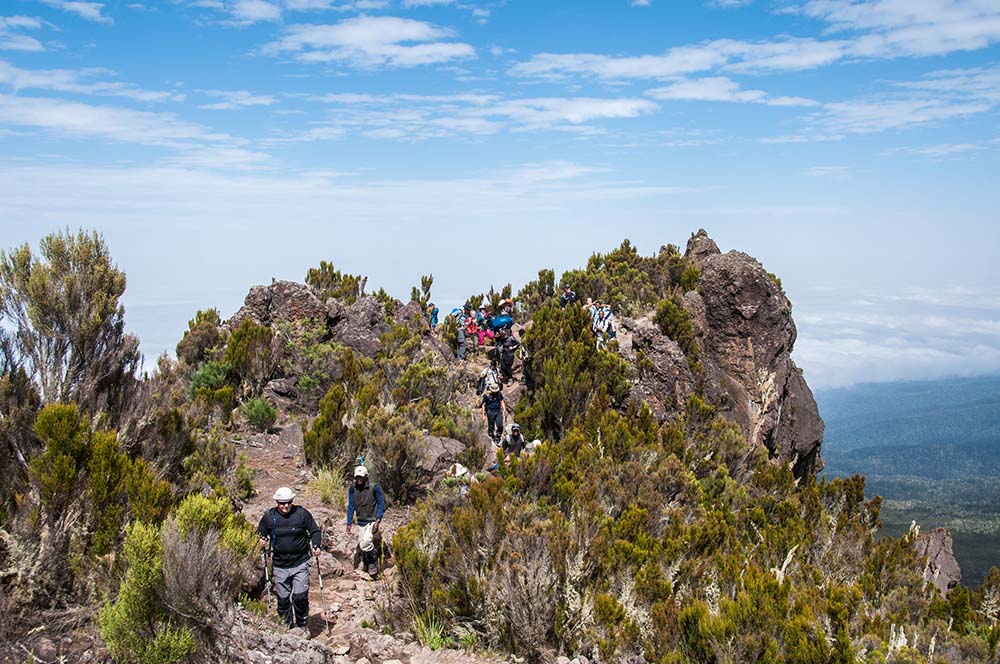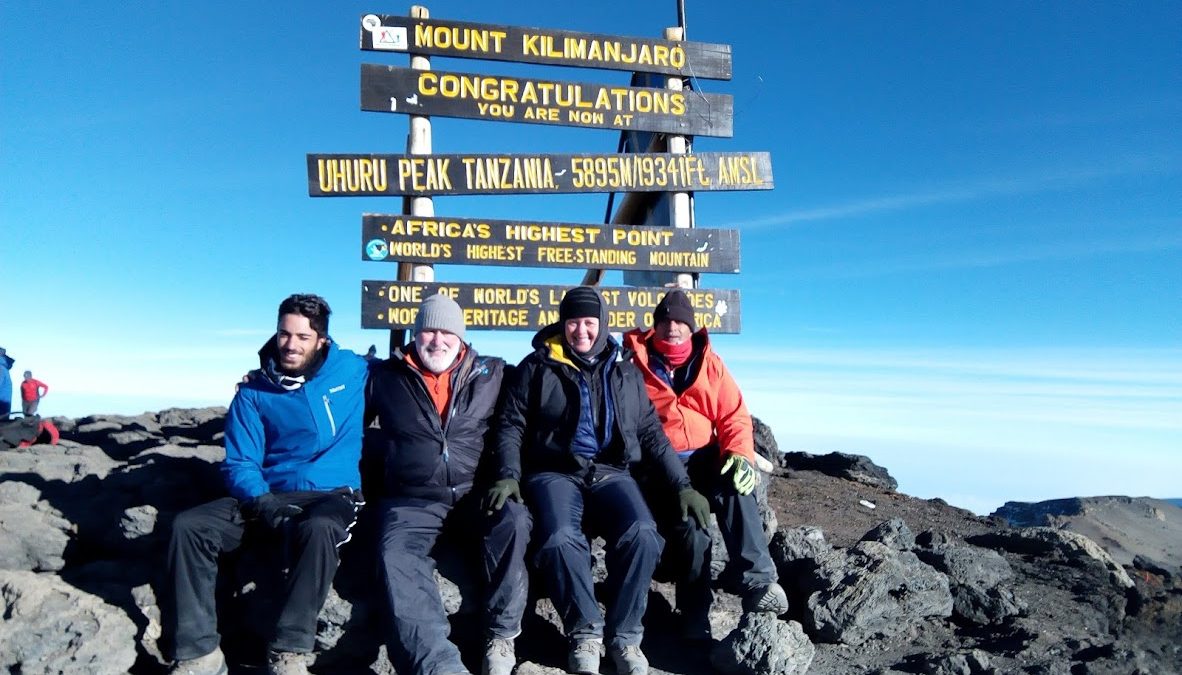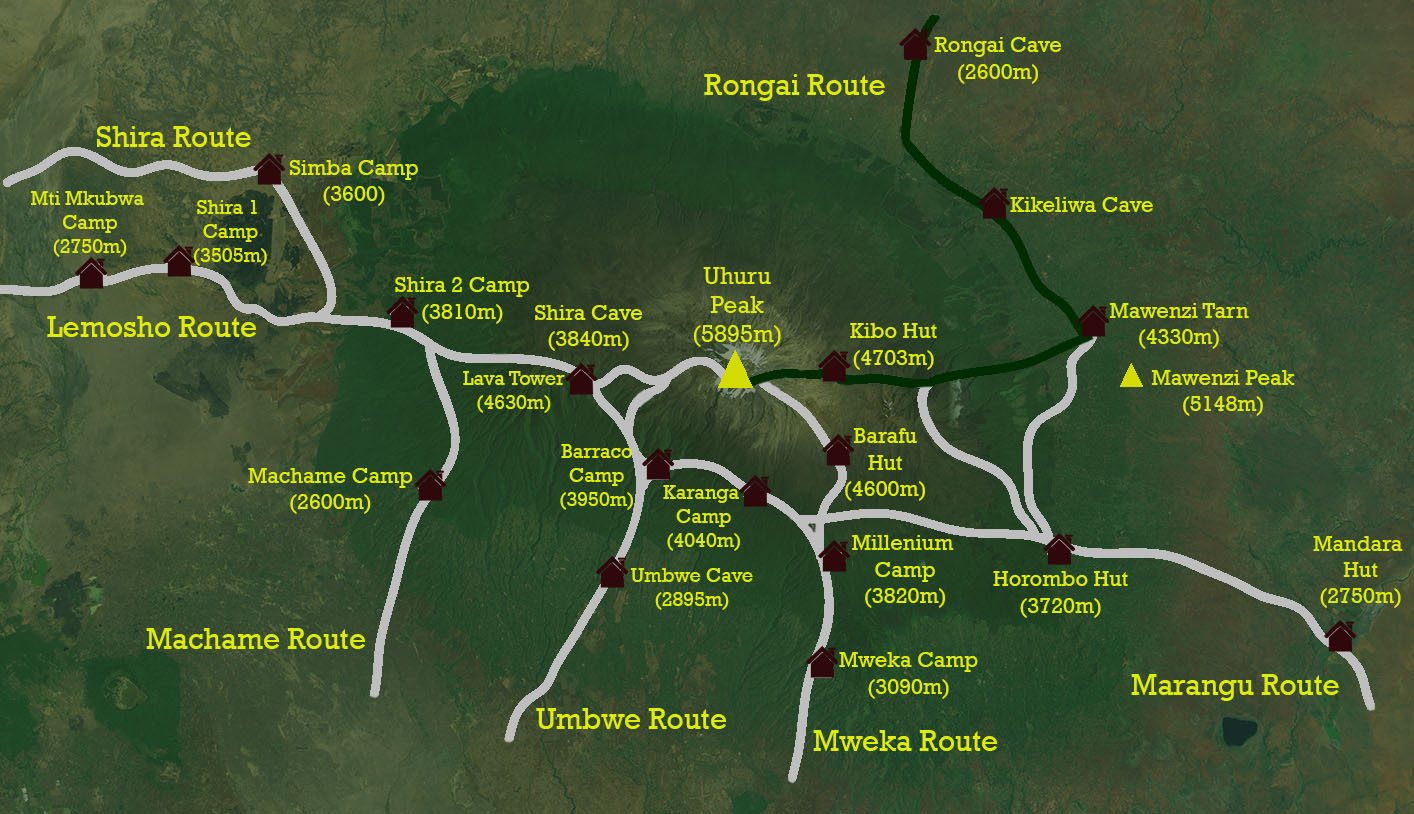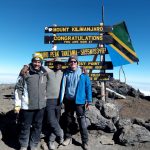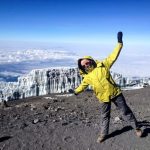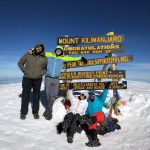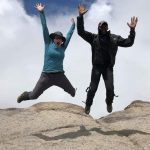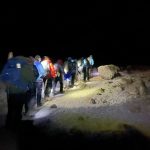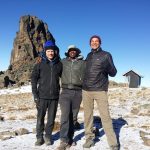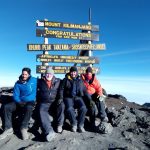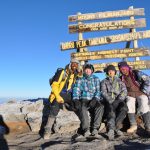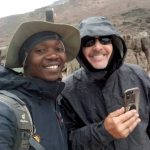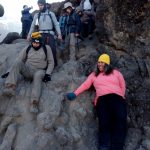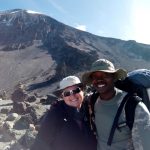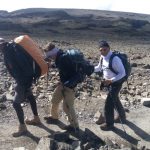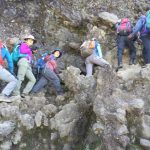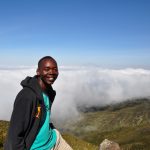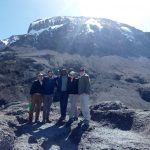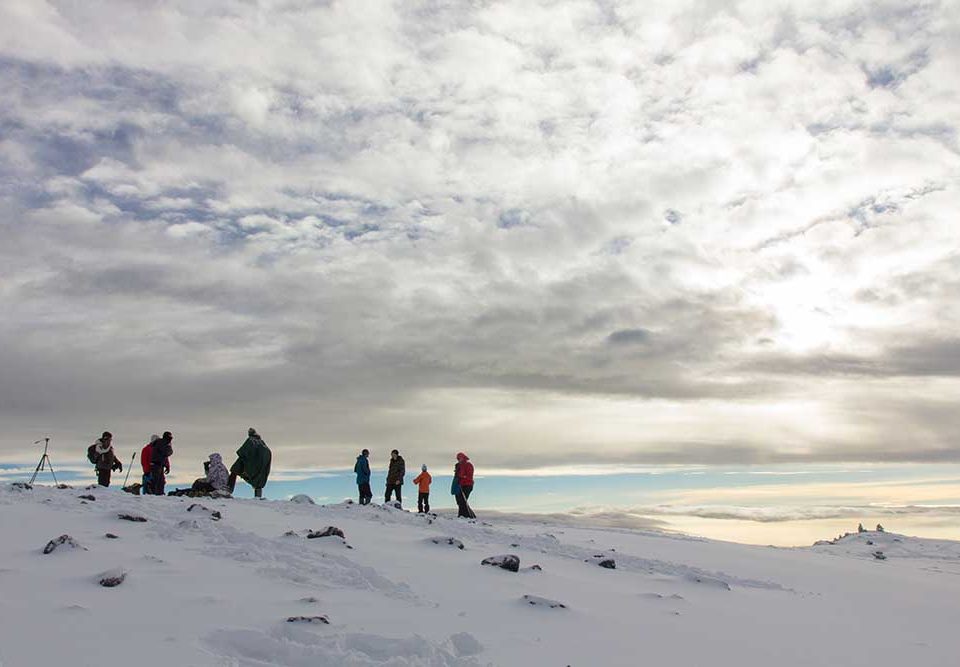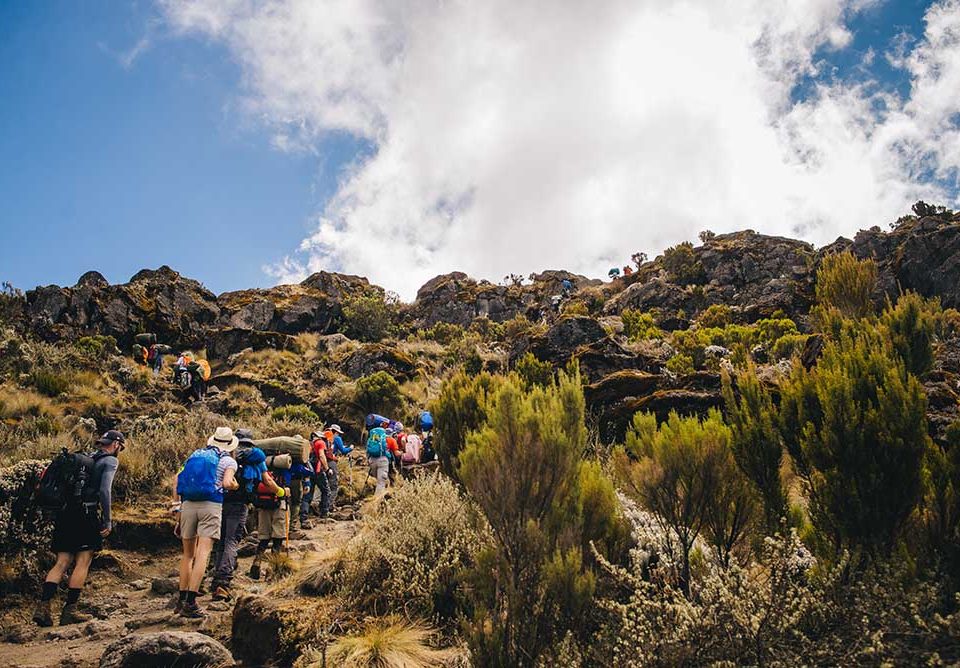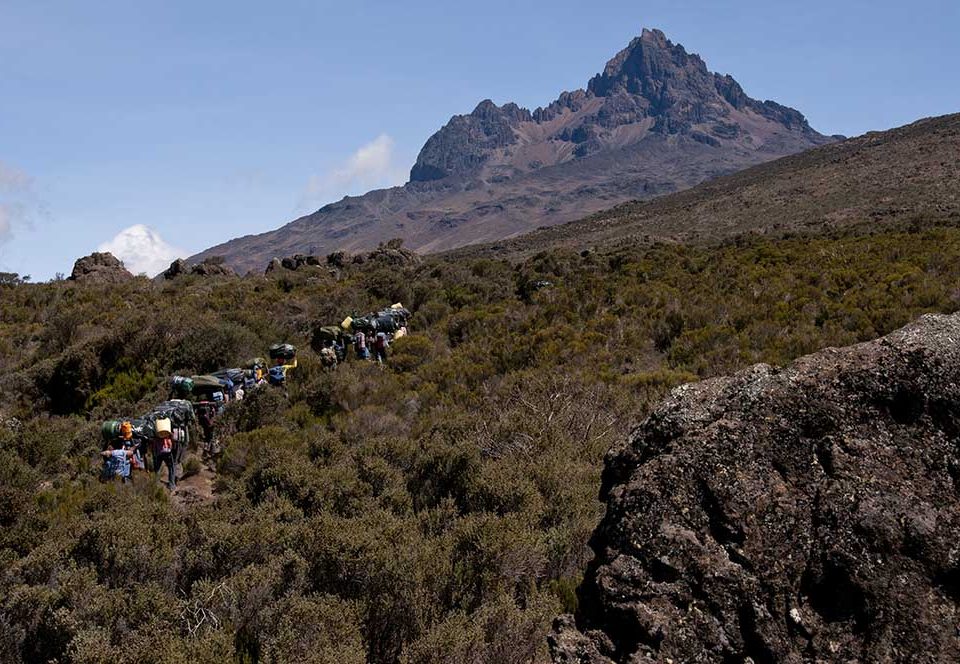Rongai Route 5 Days
SUCCESS RATE 87% - 93%
If you prefer to get ‘away from the crowds’ then the Rongai is possibly the best option for you. Less used than the ‘Coca-Cola’ (Marangu) or the ‘Whiskey’ (Machame) routes, this trek begins from the north side of Kilimanjaro and takes quite a gentle approach at the start. Also a good option if you are considering an ‘out of season’ trek as the north side of the mountain sees less rain! It is highly recommended, especially for those with less backpacking experience.
Day 1
After completing the necessary registration formalities at Marangu National Park gate, we transfer you by a Land Cruiser to Rongai. The climb begins from the attractive wooden village of Nale Moru (1,950 m.) on a small path that winds through fields of maize and potatoes before entering pine forest. The track then starts to climb consistently, but gently through attractive forest that shelters a variety of wildlife, including the beautiful Kilimanjaro Colobus monkey. These monkeys are black with a long ‘cape’ of white hair and a flowing white tail. The forest begins to thin out and the first camp is at the edge of the moorland zone (2,600 m.) with extensive views over the Kenyan plains. [3-4 hours walking]
Dinner and Overnight – Rongai Campsite.
Day 2
The morning walk is a steady ascent up to the ‘Second Cave’ (3,450 m.) with superb views of Kibo and the Eastern icefields on the crater rim. We then leave the main trail and strike out across the moorland on a smaller path towards the jagged peaks of Mawenzi.
We then take a short but steep climb up grassy slopes and we are rewarded by superb all round views and a tangible sense of wilderness. We leave vegetation behind shortly before reaching the next camp at Mawenzi Tarn (4,330 m.), spectacularly situated in a cirque directly beneath the towering spires of Mawenzi. The remaining part of the afternoon will be free to rest or explore the surrounding area as an aid to acclimatisation. [8-10 hours walking]
Dinner and Overnight – Cave 4 Campsite.
Day 3
We cross the lunar desert of the ‘Saddle’ between Mawenzi and Kibo to reach School campsite (4,750 m.) at the bottom of the Kibo crater wall. The remainder of the day is spent resting in preparation for the final ascent before a very early night. [4-5 hours walking]
Dinner and overnight – Kibo Campsite.
Day 4
We will start the final, and by far the steepest and most demanding, part of the climb by torch light around 1 a.m. We plod very slowly in the darkness on a switch bank trail through loose volcanic scree to reach the crater rim at Gillman’s Point (5 685 m.) We will rest there for a short time enjoy the spectacular sunrise over Mawenzi. Those who are still feeling strong can make the three hour round trip to Uhuru Peak (5,896 m) passing close to the spectacular glaciers and ice cliffs that still occupy most of the summit area. The descent to Kibo ( 4,700 m) is surprisingly fast and after some refreshment, we continue the descent to reach our final campsite at Horombo (3,720 m). [11-15 hours walking]
Dinner and Overnight – Horombo Campsite.
Day 5
A steady descent takes us down through moorland to Mandara Hut (2,700m.), the first stopping place at the Marangu route. We then continue descending through lovely lush forest on a good path to the National Park gate at Marangu (1,830 m.). You will find your vehicle waiting here. [5-6 hours walking]
Road Transfer to your hotel in Moshi or Arusha.
Book this tour
Included in the Prices
Excluded from the Prices
Kilimanjaro Rental Equipment
The above list is a guide to what should be taken, little else need be taken – do not overpack. Warm head cover, thick fibre pile or down jacket, light waterproof top, trousers, light overtrousers, mittens, thermal underwear, sweater, warm socks and lightweight inner socks, watertight and well broken in sturdy boots, gaiters, sunglasses, walking poles, sleeping bag (three or four season, if three then a liner is recommended), sleeping pad, water bottle, high factor sun protection cream, small first aid kit, headtorch with extra batteries, toilet roll, small wash kit and a small daypack. A holdall or bigger rucksack to give to your porter with your main luggage. Optional: a hat with a brim.
Recommended Minimum Tipping Scale:
- Chief Guide: US$ 15-20 per day
- Assistant Guide: US$ 10-15 per day per assistant guide
- Cook: US$ 7-10 per day
- Porters: US$ 5-7 per day per porter
Tip amounts listed are per group, not per individual traveler. For instance, if 4 people are on Kilimanjaro, they should each contribute US$ 5/day if they want to tip the chief guide US$ 20.
At the ceremony your group might choose to say a few words, sing a song or something else short in order to celebrate the moment.
[smart-grid mobile_row_height=”120″ last_row=”justify” style=”2″ captions_opacity=”0.4″ title=”false” share=”false”]
[/smart-grid]
